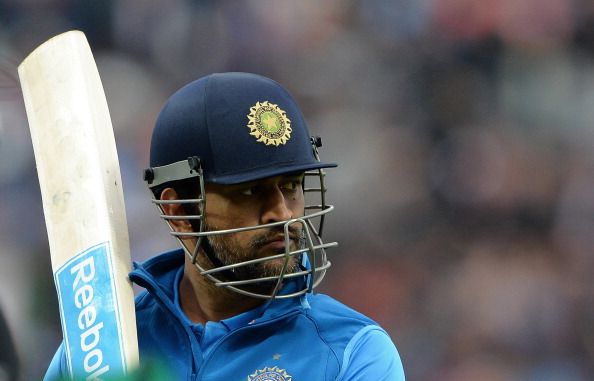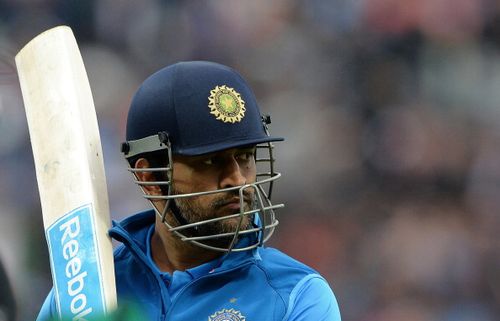
Rise of the Men in Blue - the monk and his few good men!

“God is not coming to save us…If you want to win this trophy we will have to fight it out. We are the number one-ranked side so let us show it that they will have to fight for these 130-odd runs.”
When Team India formed the huddle after the interval, that’s exactly what MS Dhoni said to them before they went out on a chilly and damp evening to defend a paltry 129 against a buoyant English side. What followed was a brave-heart effort mixed with dollops of genius from a team that has looked the hungriest for success throughout the ICC Champions Trophy.
Doesn’t sound like we’re talking about the Indian cricket team, does it?
Great fielding, defending small totals, no rifts in the side, no nasty politics – in fact, throughout the Champions Trophy one has heard nothing but positives about the Men in Blue. Maybe because this final edition of the Champions Trophy wasn’t only about winning. It was about proving a point, setting a few things straight and sending a message to the rest of the cricket world. And India did all that with some style!
India came into this tournament as the numero uno ODI side. After the exposé of the IPL-drama, people mocked at the team, questioned their credentials, faulted the ICC ratings and said – “It’s England, the ball’s going to swing”. The ball didn’t swing much but a few notions did. India got out charging off the blocks and hammered Sri Lanka and Australia in the warm up games.
“Winning is a habit and a good one too…” – MS Dhoni said after the first warm up game. Keeping abreast with their good habit, the Indians won all their group games, comprehensively, and before one could batter their eyelids, they cruised into the finals, crushing their familiar foes in the semis. As the tournament progressed, Dhoni and Co. continued to flex their muscles and the Group B toppers suddenly became a threat that the others were happy to duck.
“India has been the team of the tournament so far. They are a fearless, aggressive bunch and I have not seen that from India before. This team is better than the World Cup-winning side in 2011…” – Michael Vaughan
Vaughan is right. It is a better team. Not in terms of talent, but in intent and execution. The 2011 team had more quality – Virender Sehwag, Gautam Gambhir, Yuvraj Singh, Zaheer Khan, Harbhajan Singh and above all, Sachin Tendulkar. These stars came together, fought hard, camouflaged their weaknesses with the help of home conditions and lifted the much coveted trophy.
After that, the team hit a downward spiral. The World Cup victory was followed by back to back white washes and a humiliating series loss at home. The team was torn apart by the critics and MS Dhoni held on to his captaincy, thanks to a special someone.
Then came Australia and the Indian team suddenly rose from their slumber to inflict a 4-0 score-line on a Clarke-led Australia. But we Indians are a cynical lot. We love to demean our own triumphs by wrapping it in an envelope of sarcasm and being sarcastic about the success of the Indian cricket team has become a much desired pass time.
This attitude of ours was delightfully borne out after the series against the Australians. The media proved how bad the Aussies were while the social networking sites got busy trolling a certain left-arm spinner who left a world class batsman clueless. But it reached its crescendo with the spot-fixing scandal and there was one “logical” explanation behind every cricketing action – “Sab kuch fixed hai!”
However, amidst all these cynicism and negativity, we forgot to notice the paradigm shift that took place in India cricket. MS Dhoni, silently, did a “Sourav Ganguly” and, with the help of the Indian selectors, formed a new Team India.